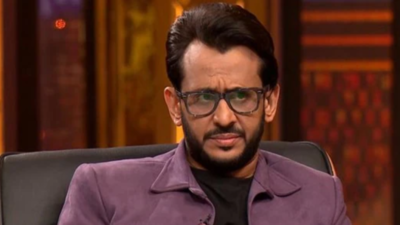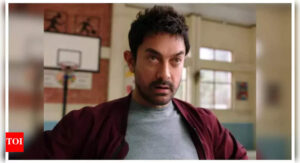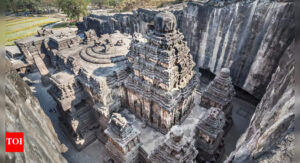Shark Tank India 4: Pitchers claim of predicting Cancer, Heart Attack and other diseases with their DNA-based screenings; Aman Gupta reacts, ‘Meri toh zindagi kharab ho jayegi’ |

Shark Tank India, which is presently airing its fourth season, recently featured a team of three entrepreneurs from Kerala and Andhra Pradesh who claimed that their innovation could forecast cancer and heart disease. Dr. Rajasekhara Reddy Ravuri, Dhaneesh Jameson, and Tony Jose introduced their startup SugarStrings.ai. They stated that their device can do DNA-based preventive health screenings and that they have developed a “unique population-agnostic genetic test that uses machine learning to identify diseases that can occur due to gene defects.” The founders requested Rs 1 crore in exchange for 2.5 percent equity, valuing the company at Rs 40 crore.
The founders claimed that their device can detect cancer and heart disease genes in the human body and may effectively forecast a cancer or heart disease diagnosis decades in advance. Azhar Iqubal was taken aback when he first heard their assertion and exclaimed, “You’re saying you can predict cancer?”” The inventors claimed that other similar goods on the market have a 40% accuracy, whereas their device has a greater accuracy. The channel’s broadcast muted their allegations, but their statements appeared to stun the ‘sharks’.
The founders stated that in the six months since the company’s inception, they have sold 32 devices, four of which have forecasted cancer diagnoses. They confessed that there is no method to check whether these predictions are correct because the individuals would have to be diagnosed to confirm the machine’s correctness. They also claimed that the test cost Rs. 58,000. When asked how they do the test, they explained that the patient must conduct the test themselves when they receive it via courier, which surprised Azhar. He stated that an expensive test should include the expense of a professional who can perform it on the patient’s behalf.
Aman Gupta pointed out that people do not even have insurance in India, implying that he did not trust the founders’ processes. “Samajh nahi aa raha ki yeh genuine hoga ya nahi hoga (I don’t know if this will be genuine or not),” the man stated. He also considered what would happen to a person’s life if the machine mistakenly projected that they would develop cancer in the future. “Meri toh zindagi kharab ho jayegi (my life will be over),” he added, seeing himself in such a situation.
Vineeta Singh pointed out that their test is inexpensive, but they cannot confirm the product’s efficacy. Ritesh Agarwal felt that the product was in its early stages in India. Azhar stated that if their product can genuinely achieve what they say, there should be a worldwide recognised research article to back up their claims. He went on to say that the founders had failed to back up their assertions throughout the pitch. Kunal Bahl thought the idea was good, but wasn’t sure if it was a business yet. The founders did not get any bids.





